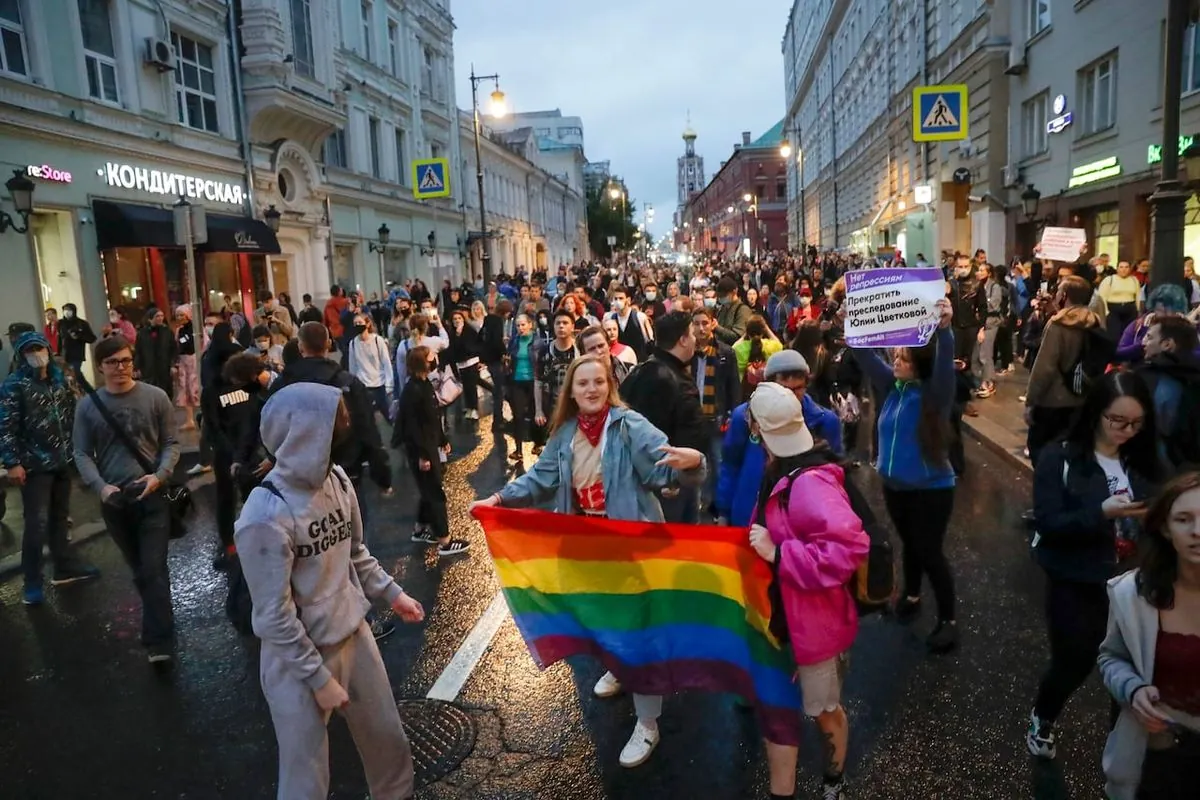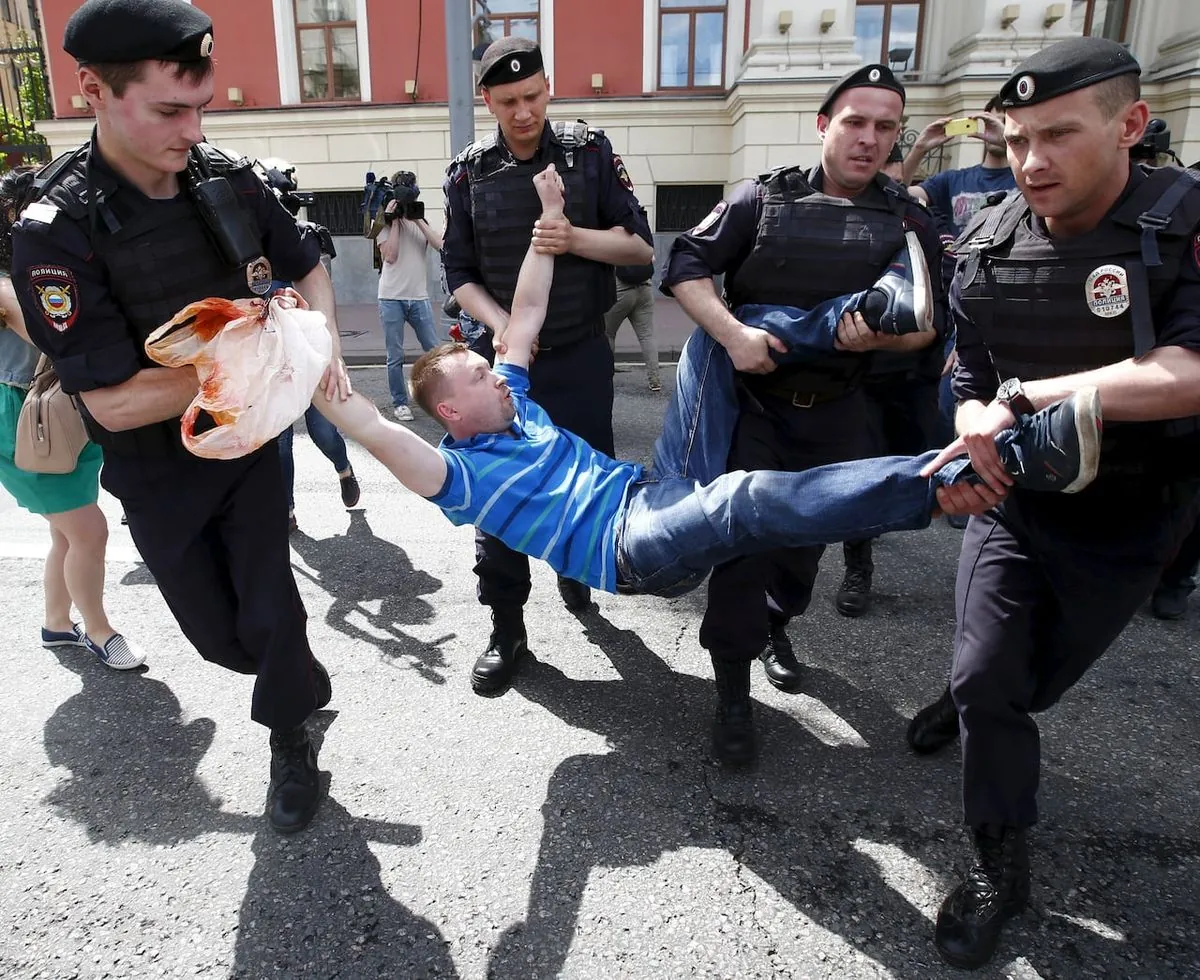Russia's Crackdown on LGBTQ Rights Intensifies with New 'Extremism' Law
Russian authorities use a new law designating the "international LGBT movement" as extremist to raid a drag bar in Orenburg. The law, part of a broader crackdown, has led to fear and exodus among LGBTQ people in Russia.

In a recent development, Russian authorities conducted a raid on a drag bar named Pose in Orenburg, a city of 500,000 near the Kazakh border. This action marks a significant escalation in Russia's ongoing crackdown on LGBTQ rights, utilizing a new law that designates the "international LGBT movement" as an extremist organization.
The raid, which took place in March 2024, was carried out by agents from the Internal Affairs Ministry and the Russian National Guard, accompanied by a volunteer organization called Russian Community Orenburg. This group, dedicated to "reviving the religious and secular unity of the Russian people," posted videos of the operation online, showcasing their actions against what they termed a "faggot bar."
This incident is not isolated but part of a broader trend that began in November 2023 when Russia's Supreme Court, in a secret proceeding, declared the "international LGBT movement" an extremist organization. This decision, which was not made public officially, has far-reaching implications. It can potentially be used against anyone who has or promotes a "nontraditional sexual orientation," including supporters of LGBTQ rights who may not identify as LGBTQ themselves.

The new law carries severe penalties, with convictions potentially resulting in up to 10 years in some of Russia's harshest prisons. This has led to widespread fear and an exodus among LGBTQ people and activists in Russia. Olga Baranova, who has been executive director of an LGBTQ community center in Moscow since 2015, stated:
"We've worked all these years just to be [out] and to be in the mainstream. And now we just say, 'Okay, stop, stop, stop!'"
The crackdown on LGBTQ rights in Russia has a longer history, dating back to 2013 when the country enacted the "gay propaganda" law. This earlier legislation, which banned materials promoting LGBTQ issues to minors, carried lighter penalties and was less comprehensive than the current law.
Vladimir Putin has increasingly used homophobia as a political strategy, both domestically and in foreign policy. He has portrayed Russia as a defender of traditional values against what he terms a "decaying West." This rhetoric intensified following Russia's invasion of Ukraine in February 2022, with Putin justifying the war partly as a crusade against the LGBTQ movement.
The secrecy surrounding the Supreme Court's decision has created additional uncertainty and fear. The order refers to a list of 281 individuals and 40 organizations considered part of the outlawed movement, but the contents of this list remain unknown.
Legal experts, such as Stanislav Seleznev from the Russian human rights organization Net Freedoms Project, worry that the Orenburg case may serve as a model for future prosecutions across Russia. This could lead to a significant increase in arrests and prosecutions of LGBTQ individuals and their supporters.
As the situation continues to evolve, many LGBTQ people in Russia face difficult choices between staying in the closet, fleeing the country, or risking severe consequences for living openly. The international community watches with concern as Russia's stance on LGBTQ rights continues to harden, raising questions about human rights and individual freedoms in the country.


































